An Interview with Zach Even-Esh, Author of The Encyclopedia of Underground Strength and Conditioning
by Adrienne Harvey SrPCC, RKC-II, CK-FMS, Primal Move Nat'l Instructor
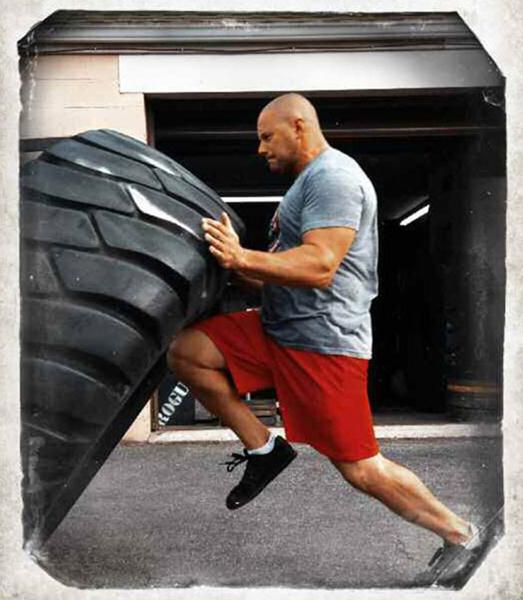
Dragon Door: How did you start seeing the world as your gym?
Zach Even-Esh: It started when I began training athletes in my parent's backyard. It was kind of an accident, but I was also influenced by some of the old World's Strongest Man Competitions. The summer after my 4th year as a high school teacher (2002), I started training athletes in the backyard. The yard had two levels with an area of stones that went across the middle.
I was always attracted to older styles of training from the golden era of bodybuilding, and the World's Strongest Man Competition that I saw on the ABC Wide World of Sports in the early 80s. As a kid, I saw those guys doing a lot of "farm boy" work and remembered it when I was training small groups and didn’t have the money to purchase equipment. Back then, affordable equipment wasn’t as readily available so I started using the stones in the backyard. We would mimic traditional weightlifting exercises—squats, lunges, bent over rows, clean and press, and we would carry the stones around the yard as well. A big tree went down during a storm, and after my dad had it cut down, the stump was left, so I started having the guys take an ax and chop away at the stump. I also would take a big beach towel and throw it over a low hanging tree branch for pull-ups. I loved being outside, there's a very powerful connection beyond the physical—it sounds crazy but there's almost like a spiritual connection.
At the same time, I had also gotten very frustrated with the typical "globo gyms" which were everywhere. There had been an awesome hardcore gym in town that shut down, so for 7 years I had been traveling a half hour each way to a very intense bodybuilding gym—it was essentially like Westside Barbell for bodybuilders. I always loved being in a great atmosphere. Whenever I would go to a regular gym, it would suck the energy out of me. I would see people fixing their hair in the mirrors, and everyone was talking in between sets or reading newspapers—it just made me crazy. So I really decided that if I couldn't find an awesome place to train, then I would make it work at my yard, the garage, and at the local playground.
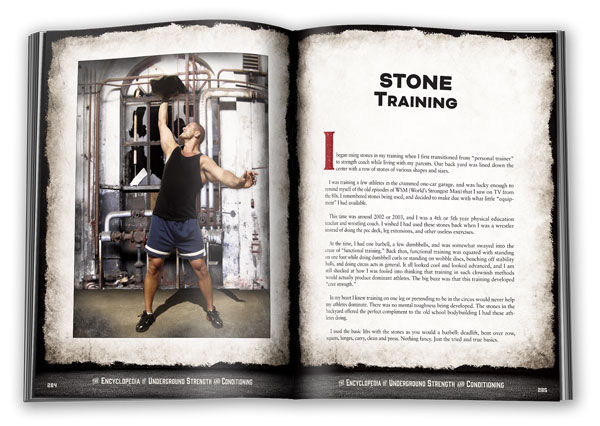
I also started training by feel instead of following a rigid bodybuilding program that had shoulders and arms on one day, legs the next, then chest and back. I was tired of being in a rigid training program and I felt awesome—physically and emotionally—when I just trained whatever I felt like training. If I felt like I wanted to hammer away at my legs, or do a ton of pull-ups, sprint, or just carry all kinds of objects, then that is what I did!
I started to look at this idea as a kind of "no rules" training. I wasn’t going to follow the rules written in the magazines anymore even though they had really inspired me when I was young. In high school I used to read Arnold Schwarzenegger’s Education of a Bodybuilder from the library at high school. I started reading it late my freshman year during study hall and every night before going to bed. I couldn't put it down! I had to check the book out from the library every two weeks, and did this over and over until the end of high school because I was so afraid that someone else would find out Arnold's training secrets. My favorite parts were when he would talk about breaking the rules of training. He and his training partner would put 250lbs of weights and a barbell in the back of his car and they would go out to the woods to squat for 50 sets or until they couldn't squat anymore let alone stand! Then they would make a campfire and grill their food. I thought that was amazing—especially compared to being in the gym where something wasn't connecting with me on a deeper level.
I wanted to feel the power of breaking the rules. When I did that kind of training, I would lose myself and find myself. I would pretend that I wasn't Zach Even-Esh, I would pretend to be Arnold squatting over and over again and it allowed me to train way beyond the norm of what was the "right way" to train. And I had a blast doing it. I think training has to be fun—if you aren’t passionate about what you're doing, you're not going to put the energy into doing it.
So, after following a typical bodybuilding program, I really loved the no-rules, no-program plan. Training outdoors with whatever was around started becoming my thing. And then my friend and I started going to the local elementary school playgrounds bringing a sandbag, one or two kettlebells, and maybe a sled. We used the parallel bars, pull up bars, park benches, picnic tables, and would throw the kettlebells instead of just doing standard squats or clean and presses. Then we would push my truck.
In town, there was a tire yard with tires piled 20-30 feet high. On the weekend we would go there and bring the guys bagels and coffee, and they would pull down some tractor tires for us. We would spend an hour or two just flipping tires, doing box jumps on and off the tires, and tire wrestling (partners pushing a tire back and forth). I loved it and was going with my gut instincts with training.
That's how I started looking at the world as a gym, and found that there really are no rules to training. Certainly there are ways to optimize training, but I really wanted to develop the mental aspect, not just the physical. I allowed myself the freedom to train anywhere—it goes beyond the physical and that’s powerful. It’s easier to explain this concept to someone who has tried it versus someone who always trains indoors at a gym and/or with a "perfect program." I matched my training to go with my personality traits.
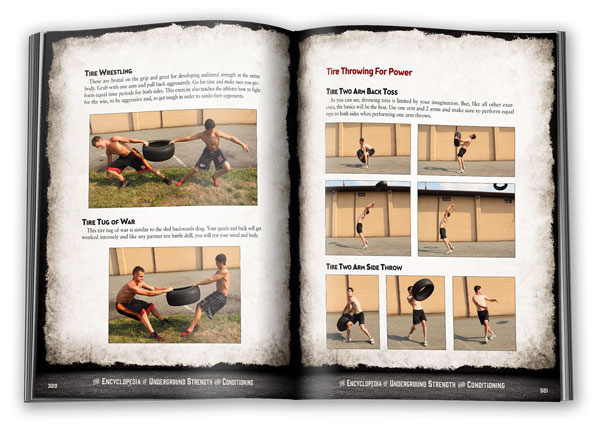
Dragon Door: It takes a lot of confidence to break away from an established norm. If something is in print or on TV, then many people have a hard time questioning it. How did you gain the confidence to break the rules in your training and begin to develop the mental side of your training?
Zach Even-Esh: It basically came from a lack of results from following the rules. I just had a similar conversation last night at a wrestling club. I was telling them that I hate to lecture—I really just want to train people! I hate to try and explain things when our results prove what works so much better. When I was in high school, I followed a bodybuilding program and went to the local bodybuilding gyms. Even my coach said, "You look extremely imposing, like you could really go out there and kick somebody's ass!" But then we talked about a match where I lost to the kid who won the county tournament. We discussed how I took him down and then he basically bench pressed me right off of him. At one point I couldn't escape from the bottom position for two whole minutes—a whole wrestling period. I remember wrestling guys who looked so much less physical than me, but then I also remember being gassed out and tired by the time the 2nd period ended. I began to question myself and wondered why I was so tired if I had trained so hard!
I learned that following a traditional type of program didn't physically develop me for what I needed in my sport—it didn't develop key traits like brute strength and overpowering strength. It didn’t develop endurance or power endurance, and I would lose my strength and explosiveness as the wrestling match went on. I saw this with other athletes—they would start off strong then gas out and start fatiguing. This also had a negative mental impact, because I started to wonder why I wasn’t successful when I was working so hard.
By following the rules, I looked good and had the bodybuilding physique, but it didn't effectively carry over into my sports performance. On the extreme side of things, I would have not done well in a street fight because by following the rules, I was also not prepared for the unknown. Things happen in this world and the more your training makes you uncomfortable, the more comfortable you can be in situations where you have to harness your fear. My confidence came from the proof that when I trained like a bodybuilder in a gym while following traditional advice, it did not pay off.
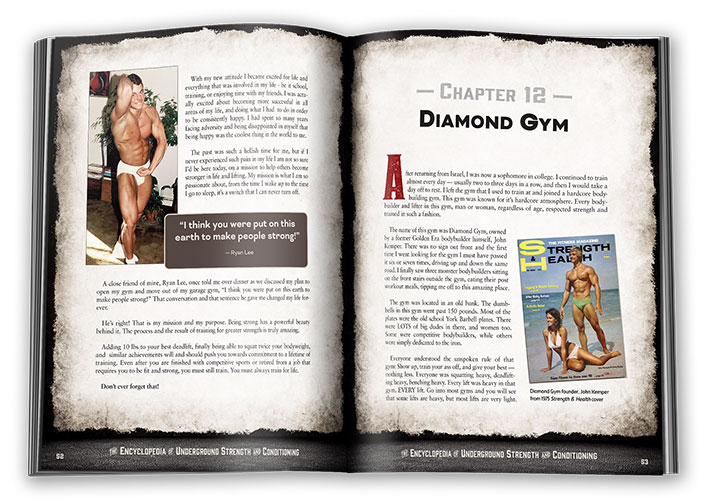
About two years ago, hurricane Sandy hit this area which is very close to the beach. People were going into other people's backyards and stealing generators, they kayaked down the coast and broke into homes which had been evacuated, and some people looted from stores. At the time, I had a barbell sitting in my garage loaded to 275 or 325 lbs. that I would deadlift a couple times every day, 2-3 reps at a clip. I did this because I wanted to build strength that would be usable even when I am not warmed up, when the situation isn’t perfect. After the hurricane and late at night I would have to take the generator back into the house. It was heavy and full of gas, and at 5AM in the morning I would have to wake up and take the generator back outside. If I had followed a perfect gym workout I would be thinking, "I can't lift this heavy generator, I am not warmed up, this is going to be bad for my back!"
What I’ve learned from training outside of perfect planes of motion and ranges of motion is that following the rules can have a negative effect on being prepared for what I would call "the shit that happens" in the real world. When you train outside the true confines of the perfect situation, you start to develop confidence in yourself and a mental strength or toughness.
It's just like when people run a Spartan Race, the confidence they gain from overcoming obstacles carries over to overcoming obstacles in life. Now when I look at the athletes who are training with us, I see that they are not just tough, they're hard-nosed and it doesn't just carry over to their sports. We're developing a lot of high level athletes in many different sports—not just wrestling, we are also training football players, swimmers, soccer players, track and field athletes, and baseball players. But they all have had a lot of success by training with odd objects inside our gym and outside. One of our gyms is near a playground and many times we go to that playground for half of their workout—it has a great carryover to their sports and their life.
Parents of these athletes often email me and say that they've never seen such dedication, confidence, and commitment to school and school work. But they would not see these benefits if we weren’t breaking from the traditional path. The mental and physical strength is built with our Underground training.
Dragon Door: What are some of the strangest or favorite odd objects you’ve used in a workout?
Zach Even-Esh: I have an anvil at one gym that weighs about 130lbs and I've done workouts with it that include military presses, carries, squats, and bent over rows. When you grab the anvil, your body has to work in incredible ways. You can't adjust the weight, so it’s heavy no matter what!
When I grab a hold of some old piece of equipment like an anvil, I know that there's a history behind it. I've seen some very rare old photos of athletes holding the head of the anvil and these athletes are built like brick shit houses. They look like they could just run though a wall!
Another favorite is a 150 lb circus dumbbell. It’s a globe dumbbell and very few people have been able to clean and press it—I haven’t been able to do it yet, but we have had a few people get it overhead. I like to do one arm rows with that dumbbell because it isn’t perfectly balanced and is always trying to rotate out of your hand! No one is sure how old it might be, but Richard Sorin of Sorinex said that it seems old enough to have been used by circus strongmen. That thing is like wrestling with a beast! When I look at it, history flashes through my mind and I wonder who the hell was strong enough to manhandle this thing and throw it around! It just blows my mind!
Dragon Door: What inspired you to write a book that really is an encyclopedia but also very autobiographical book?
Zach Even-Esh: There were a couple of reasons. Many people judge others by what they see, and if they see a video or an article about breaking the rules, they might start thinking that whoever created it might not be so smart since he isn’t writing about how to get bigger calves, a bigger chest, or bigger biceps. When I would hang out with friends from the industry—and some of them are pretty heavy hitters—they would hear my stories about how I train my athletes and say, "We didn't actually realize you are that dialed-in and in tune to what your athletes need!" A friend of mine basically said, "Why don’t you write a book you're a damn genius!" And my wife would always say, "Write a book! Write a book!"
At first I thought there was no way could I write a book because I run a gym, multiple online businesses, I've got two kids, and am always on the run. Early on I connected with a different publisher and to make a long story short, wasn't paired with the best co-author who soon bailed out. Originally, the book was just going to be pictures and the methods. When the original co-author bailed out, I was looking at a big job. We had more than about 2,000 photos and I thought I was too busy—I'd opened a second gym and was doing stuff with my kids. I thought I really couldn’t write the book, and my friend told me once again, "Just do it, find a way and make it happen!"
I started thinking about when I was younger and how I felt like books literally saved my life. When reading books like Arnold's, I was inspired by how he overcame life obstacles, and how he learned from weightlifting. Everyone used to say things to him like, "Arnold why are you trying to be the man with the biggest muscles? What a waste of time! Arnold, go get a job and do something that your family can be proud of!" Then while he was in the army, he was so determined to be in a bodybuilding contest that he left the base in the middle of the night and hopped on a train! When he came back, they put him in solitary confinement! I was so inspired by a man who took his passion and his belief and went for it. I read that book every day and every night over and over again. That book influenced me so much that I realized I needed to turn my own book into more of an autobiography AND training manual.
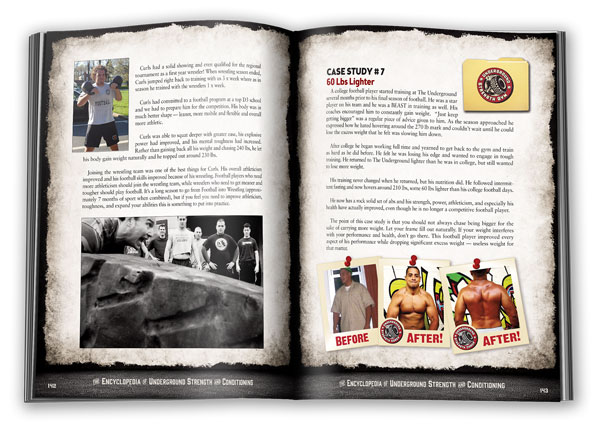
So many other books out there were all emphasizing shortcuts, no hard work, and no need to be tough. Everything was just a 12 week or 16 week program. I wanted to write a book for the younger generation, my age group, and men and women in their 60s-70s. This book would not be confined to an age group, but would be a tough and timeless book you could give your kids to read. I became inspired to leave a mark on this world in a more powerful way.
I told Elliott Hulse, "I don't know where all your YouTube videos are going to go, but I don't think books will disappear." I have a couple of books from the late 1800s, and many from the early 1900s. I really wanted to share my life story and be vulnerable with it so that people could see why I am so passionate. I want to help other people become passionate about taking what they learn from weightlifting and strength training and apply it to their lives. I also wanted to write a book that my own kids would be able to read in their teenage years and that would make them proud of me, and what I have done.
So I just had to find a way to do it. I wrote at night or whenever I could during the day, I went back and rewrote and edited—it took me so long! John Du Cane was super flexible with me and any deadlines, because he saw that it was just constantly evolving. I am really pumped about this book because I believe it will inspire so many people not just in training, but in life.
Dragon Door: In a way you’ve already answered this question, but who did you specifically write this book for?
Zach Even-Esh: I always found myself being hyper-connected and caring about people who were struggling, no matter what I was doing. I taught public school for 11 years, then left 6 years ago to begin coaching. Then I started creating online content, created the USC Certification, and started doing business coaching. I didn't want people to have to go through the same struggles or painful experiences I went through. There are many parts to this book that I think will help people not just develop the body that they want, but also the mind and the life that they want.
During the early years of starting my business, I was super busy. I would wake up and go to work so early that I wouldn't see my wife and daughter. After work I would teach at my gym and by the time I’d get home it was 9PM and my family would be sleeping. So, I always really care about other coaches who have families, because I don’t want them to miss out on family time.
A big part of the book details the tough times I had during my teenage years and how I went through a pretty solid stint of being straight out depressed. I see a lot of young kids out there who don't have confidence in themselves—and they sometimes carry it into their adulthood. Because of that lack of confidence and lack of belief in themselves, they don't fully achieve what and who they can become.
When you train hard in ways that break the rules, you learn about yourself. You learn that you are capable of achieving any success you want. So, I wrote
The Encyclopedia of Underground Strength and Conditioning for people who want to be inspired, who want to learn, and who have an open mind. This book is for people who don't discriminate between the many ways of becoming strong—it's not just weightlifting, powerlifting, bodyweight, or
kettlebells. I wanted to open people's minds to the many ways of developing a strong life.
So this book is for everyone, but I certainly have a deep part in my heart for the people out there who will read this book when they’re going through some tough times, and then find that they can change their lives. There are many people out there who I can’t wait for this book to get into their hands!
Dragon Door: In your book, you specifically talk about not just training for what needs to be accomplished in a given sport, but also training approaches that are specific to the individual needs and personalities of your athletes. How did you discover and then implement that kind of training, especially since it often goes against what seems logical?
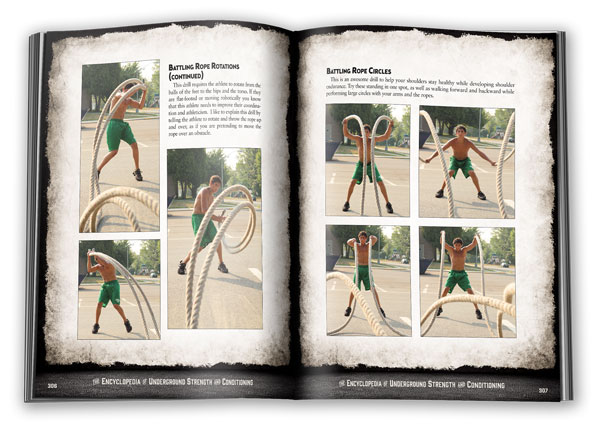
Zach Even-Esh: One of the first groups of athletes I worked with was a crew of wrestlers that had finished their sophomore wrestling season with just below average success, but they were extremely motivated to work hard. I noticed that they all had the same goal—they wanted to be All State or State Champion Wrestlers—but they all had very different personality traits. Some seemed to get more bumps and bruises from their sport specific training (not the strength and conditioning training). I also realized that some of them seemed to never fatigue and thrived on extra hard and heavy lifting. When the workout was over, they would do extra work because they wanted to!
Still other athletes would let me know if they were not feeling up to a workout on a given day or were feeling a little beat up and wanted to go lighter—they would train according to how they felt. Lastly, other athletes had plenty of potential, but needed to build their minds to the next level. They had all the physical tools but their minds were holding them back. No matter how perfect the training, unless they got tougher and started believing in themselves, they would not get to that next level.
Many of the athletes would need different approaches with their intensity, and overall volume of work. When I talk about volume, I mean the amount of time that they're working out, the amount of intensity, the volume of sets, reps, and how hard the set is pushed. I started to realize that I needed to match the training to meet their personality traits to help them feel confident and believe in themselves.
Because once a kid started feeling run down, he would start to lose his confidence and ability to perform at a high level. He would be worried about feeling tired, sore, beat up, so I would stop his workout a little short and spend extra time doing mobility work with him, or if a big competition was coming up, I would deload him 7-10 days out. Or he wouldn't even train with me the week leading up to the competition so that he could be well rested. I had another kid who would do the workout and in between the sets while others would rest, he was doing pull ups, plyo push ups, kettlebell snatches and he would stay after and do lots of sled work, sledgehammer work, flip the tires, and extra arm-work. All that extra work made him feel awesome—physically and emotionally.
If we looked at his program from a scientific standpoint, we’d say, "Whoa way too much volume! He's overusing this movement, doing too much of this other thing, and is missing a post-workout meal! And he's not going to get enough time to recover!" But because of his mentality and belief system, he thrives and performs better with this high volume of work. If we try to force him to cut back, it will mess with his confidence and ultimately hurt his overall performance.
When we really take the time to learn the personality traits of the people we train, we can match the training to them. The athletes sometimes change over time too. I trained a wrestler who at first wasn’t even going to wrestle during his senior year. I said to him, "Do me a favor, don't go running at all, and don't join a wrestling club. We're only going to train one day a week for 15-20 minutes." He agreed to try it. After a very short warm up that also allowed him to practice the movements we would be training, he would begin a small circuit with one light set, one medium set and three hard sets. The circuit would include various lifts including deadlifts, clapping pushups or floor press, and low reps of heavy swings. At the end he’d maybe do a rope climb and 1-2 sets of grip training and abs. He ended up taking 4th place in the state and set the school record for number of wins that year with something just shy of 150 career wins.
If I had trained him like everybody else, it wouldn't have worked because he was burned out and he needed a lot of rest. The extra rest built his confidence and allowed his body to recover. And plenty of athletes have the opposite situation, they’ll do the workout and then do their own workout afterwards for another hour. They thrive on the work ethic and high volume. What might totally crush and overtrain one person might be perfect for someone else because of his or her personality.
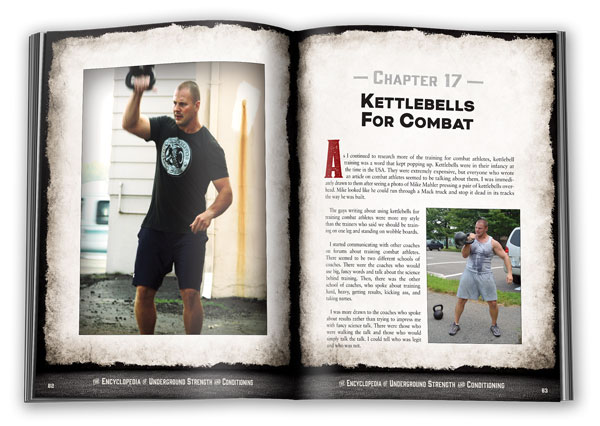
When you are training athletes, you need to have the mental agility to train people individually while in a group of 10-20. Each athlete will have different intensity levels, different exercises, and different things happening in between sets of their workouts. But, people can also train on their own this way, even if they aren’t strength coaches.
I've always said, we're all coaches even if you coach yourself. If you want to train yourself, you need to auto-regulate. If you feel great, then get after it and crush it that day. If you feel beat up, then go ahead and back off. But if you need to develop mental toughness and confidence in yourself, then on some of the days when you feel beat up, maybe warm up for 6-7 minutes then attack 1 or 2 exercises. You will end up with a feeling of accomplishment from doing something that didn’t feel possible at first.
There’s a lot to be said for what
Ryan Holiday calls (in one of my favorite articles on Dragondoor.com) "Building Your Inner Citadel". I love that article because it is so true that you MUST build your inner toughness, and that only comes from challenging workouts. If you're only doing "perfect" workouts, then you will not be ready for life challenges. You’ll always think that the conditions need to be perfect, that you need to be warmed up, to have had eight hours of sleep, or you'll always have some kind of excuse. But when you’ve already challenged yourself and pushed beyond what your mind thinks is right, you will develop the confidence to handle challenges in sports and in life.
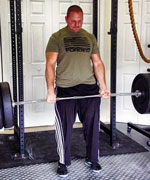 Zach Even-Esh is the founder of The Underground Strength Gym and the creator of the Underground Strength Coach Certification and author of The Encyclopedia of Underground Strength and Conditioning now available from Dragon Door Publications.
Zach Even-Esh is the founder of The Underground Strength Gym and the creator of the Underground Strength Coach Certification and author of The Encyclopedia of Underground Strength and Conditioning now available from Dragon Door Publications.
Since opening his gym, Zach has trained hundreds of athletes from youth levels to the Olympic level. Many have gone on to achieve All-State, All-American and National Championship titles.
In addition to operating his training and coaching services on a daily basis, Zach serves as a consultant for Division 1 wrestling teams along with coaches and athletes around the world.
His mission is to help you kick ass & take names in life AND lifting without the hype, fancy fads or gimmicks coupled with real world experience dating back to 1989.
Back